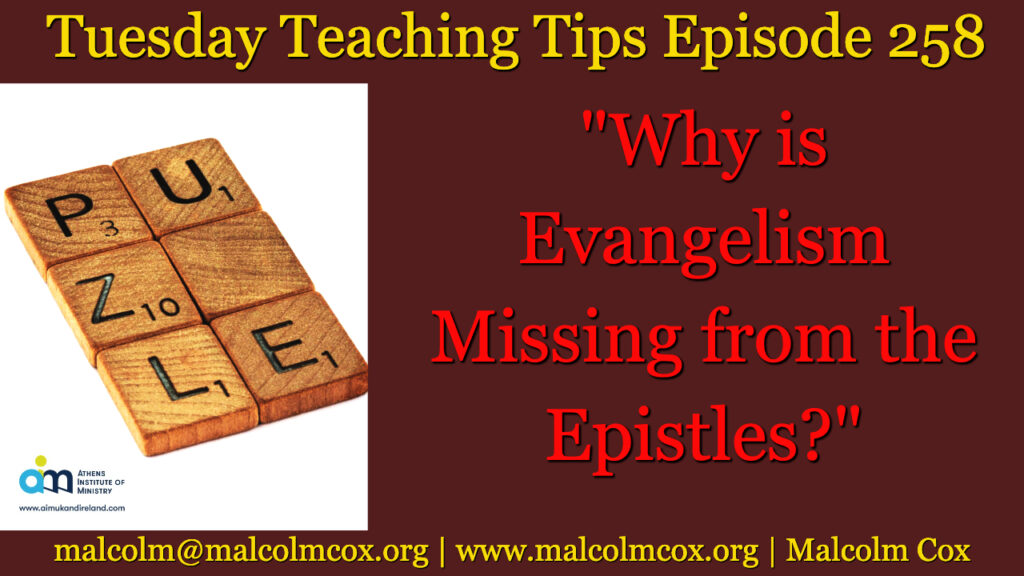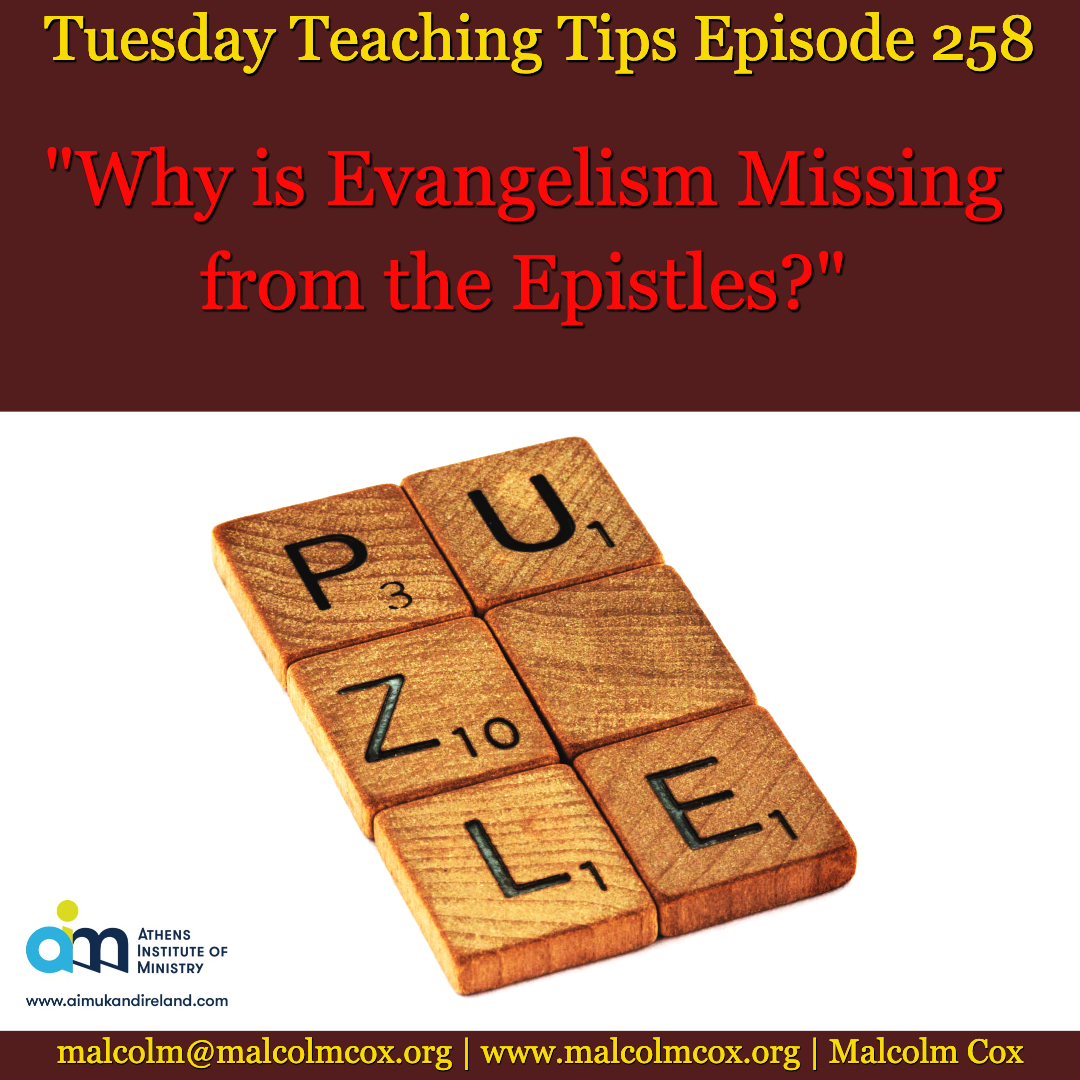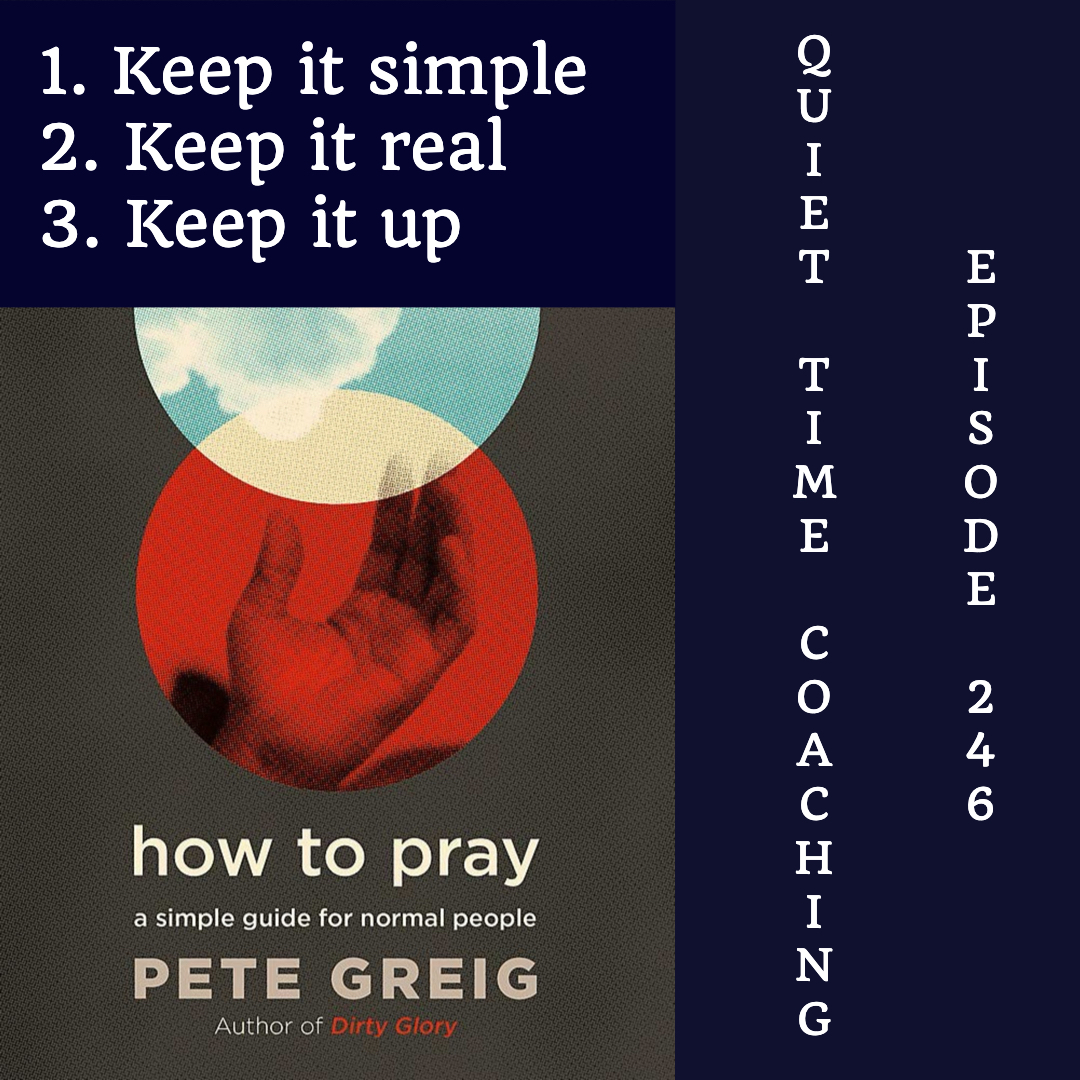Tuesday Teaching Tips | Episode 258

Today a response to a question from a friend, which was promoted by a previous teaching tip on ‘personal fruitfulness’.
“I had a question. In the NT and especially Paul’s letters. There’s little emphasis on Evangelism. However we see the Lord added to their number. Firstly, I wanted to ask why you think there was no emphasis? Secondly, what were they doing then that allowed that growth to happen?”
This also struck me as a young Christian. I remember a teaching weekend on Philippians and how little there was about evangelism and how much there was about Christ, love, peace, unity.
How did they have an impact? They stood out!
- In their DNA
- Acts 8:4: “Those who had been scattered preached the word wherever they went.”
- Not participating in pagan worship due to idolatry:
- “Nevertheless, I have a few things against you: There are some among you who hold to the teaching of Balaam, who taught Balak to entice the Israelites to sin so that they ate food sacrificed to idols and committed sexual immorality.” Rev 2:14
- Some meat from sacrifice sold in marketplace. Not a problem, 1 Corinthians 10:23-30.
- Meat from sacrifice consumed in a religious context. A problem. Acts 15:29; 21:25; 1 Cor 8:1, 4, 7, 10; 10:19, 28; Rev 2:14, 20.
- Although on occasion these meals might have served a more social and political purpose than a religious one, any food eaten in a temple or in a building connected with the Temple would even in theory be a religious event. As such, one was eating with the so-called gods. Not something a Christian could do.
- Jn 13:34-35 – love & joy
- Seen as incestuous by critics.
- “We practice sharing in our banquets, which are not only modest, but also sober. For we do not indulge in entertainments, nor do we prolong our feasts with wine. Rather, we temper our joyousness with seriousness, with chaste discourse, and with bodies even more chaste.” Mark Minucius Felix around 200 A.D.
- Hospitality plays a significant part in this – may be harder work than ‘inviting’ people. Imagine Jew & Gentile, slave and master eating together.
- Cared about others’ poor
- The pagan emperor, Julian the Apostate, wrote to a pagan priest: “when it came about that the poor were neglected and overlooked by the [pagan] priests, then I think the impious Galilaeans [i.e., Christians] observed this fact and devoted themselves to philanthropy.” “[They] support not only their poor, but ours as well, all men see that our people lack aid from us.”
- Consider also that the Jesus movement can be characterised as “setting the oppressed free”. “What if evangelism was inviting others to join this movement and church work was organizing local efforts to keep the movement moving?” Reconstructing the Gospel, Jonathan Wilson-Hartgrove
- Confident & courageous: they knew what they believed, they had a personal relationship with God
- “Peter and John replied, “Which is right in God’s eyes: to listen to you, or to him? You be the judges! As for us, we cannot help speaking about what we have seen and heard.” Acts 4:19-20
- Courageous: despite persecution from both Jews and pagans
- “Paul replied, “Short time or long—I pray to God that not only you but all who are listening to me today may become what I am, except for these chains.” Acts 26:29
A lifestyle and community like the above requires maturity. We need good Bible teaching, a strong community, and a vital walk with God.
Fundamentally our challenge may not be that we do not understand evangelism, but whether we understand the mission.
Please add your comments on this week’s topic. We learn best when we learn in community.
Do you have a question about teaching the Bible? Is it theological, technical, practical? Send me your questions or suggestions. Here’s the email: malcolm@malcolmcox.org.
If you’d like a copy of my free eBook on spiritual disciplines, “How God grows His people”, sign up at my website: http://www.malcolmcox.org.
Please pass the link on, subscribe, leave a review.
“Worship the LORD with gladness; come before him with joyful songs.” (Psalms 100:2 NIV11)
God bless, Malcolm


